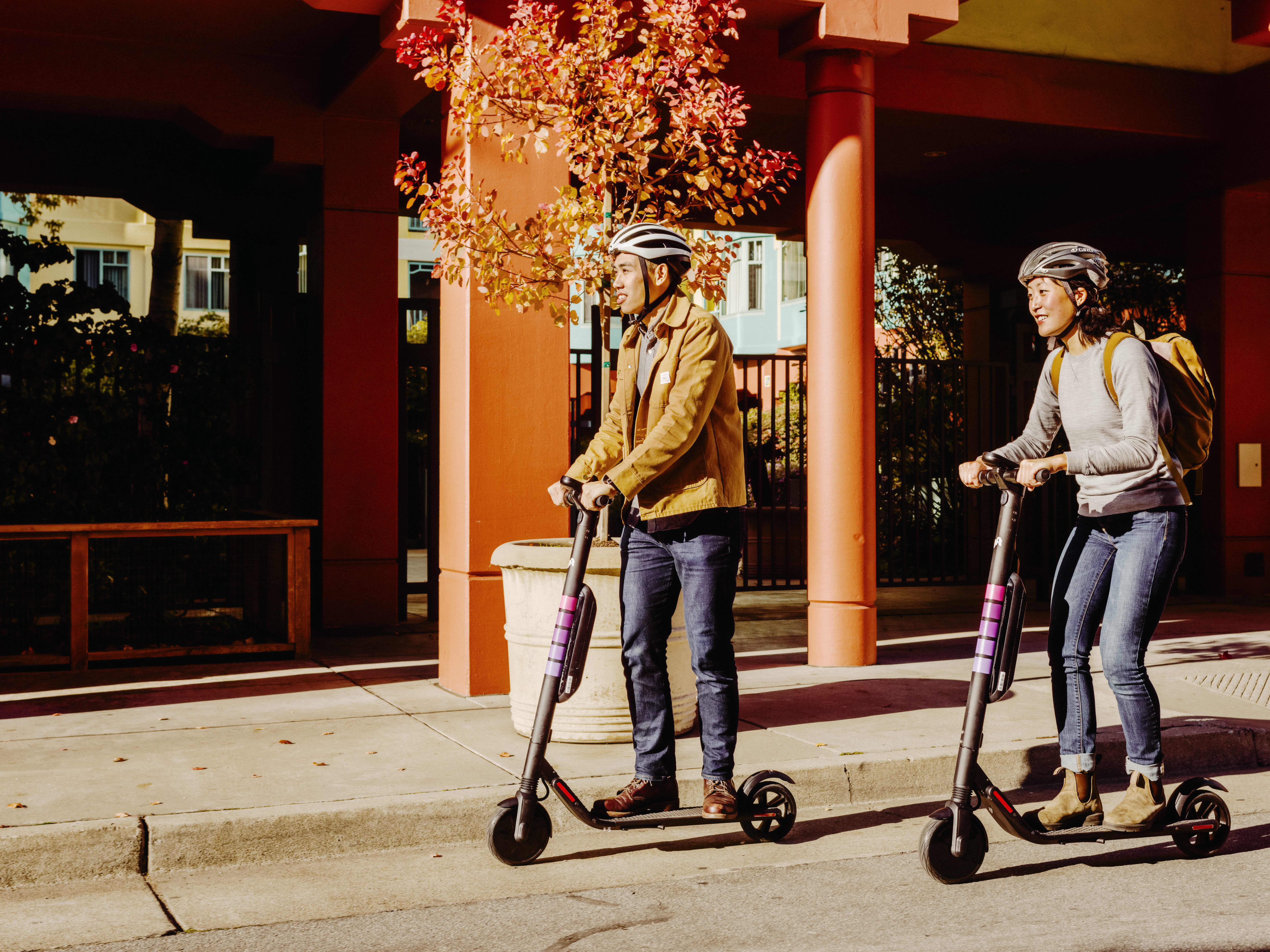It’s been less than a year since city leaders were freaking out about the proliferation of dock-less bike shares, which were clogging sidewalks and ending up in trees and vacant lots. Despite some consternation about how the city might step in and regulate the bike shares, the whole ordeal was resolved with one simple solution: the scooter. Almost overnight, scooters bumped bike share off the streets and the hand-wringing about bike tangles was over.
Unlike the bikes, it doesn’t look like those electric scooters are a passing fad. According to a recent report by the National Association of City Transportation Officials, during the first full year after scooters first hit the streets of American cities, 38 million rides were taken. Incredibly, scooter companies are scaling faster than any new transportation innovation, including ride-share, according to this Axios analysis.
Since it seems like scooters are here to stay, it makes sense to begin to talk about regulations.
Like the bikes, there are some lingering questions about how scooters fit into Dallas’ current mobility picture. Electric scooters sometimes clog up sidewalks; street infrastructure supporting their usage is insufficient; and there have been many questions about safety and liability. So how will cities regulate their use in a way that doesn’t stifle their success?
An op-ed on Streetsblog reports that several cities have started to search for answers:
Cities have begun regulating these rapidly proliferating vehicles in a variety of ways, including imposing caps on the number of scooters allowed by each operator, speed limits, designated parking zones, and permit systems that include fees and taxes. In this vein, San Francisco stands out among its peers for the deliberate process it has taken to legalize scooter sharing. After demanding that all the scooters dropped on the street without permission be removed, the city created a permit system and awarded two of them, to Skip and Scoot. Other cities have avoided this altogether by simply banning dockless scooters (or refusing to update their regulations to allow them).
Banning scooters altogether seems like an obvious short-sighted option, given how popular they have proven to be and how valuable a role they can play in solving the so-called “last mile” public transit problem. Unsurprisingly, no one has figured out the right mix of rules and regulations yet. But that’s a good thing. What is instead happening is a series of city-by-city experiments. Santa Monica, for example, has designated public rights of way for bike and scooter parking. Santa Cruz has a hybrid model that permits scooters to be parked at docking stations and bike racks. San Francisco tried reducing sidewalk clutter by requiring that all scooters have locking mechanisms, and it seems to be working. The Bay City also piloted a program that allows low-income residents a break on scooter rental prices.
The advantage for Dallas is that it can sit back and watch all these cities’ experiments and determine which mix of new laws will work better here. That said, California also presents another lesson for Texas. Even as California cities are fine tuning their approach to scooter regulation, the state legislature has stepped in with a blanket bill that may frustrate many of these efforts. Streetsblog goes into the details of the proposed state law, but the lesson for Texas is simple. Any scooter regulation should be generated by a city’s individual experience with the new technology, allowing ideas to be generated by local feedback and data-driven analysis.
Patience and local discretion. That may seem like an obvious policy disposition. But given the Texas legislatures recent penchant for stepping on cities’ toes, it is one worth repeating.





